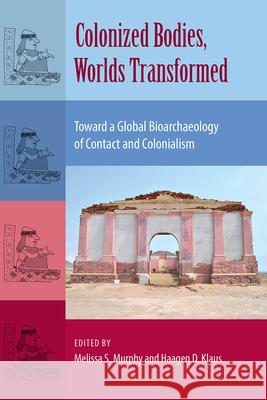Colonized Bodies, Worlds Transformed: Toward a Global Bioarchaeology of Contact and Colonialism » książka
Colonized Bodies, Worlds Transformed: Toward a Global Bioarchaeology of Contact and Colonialism
ISBN-13: 9780813060750 / Angielski / Twarda / 2017 / 464 str.
Colonized Bodies, Worlds Transformed: Toward a Global Bioarchaeology of Contact and Colonialism
ISBN-13: 9780813060750 / Angielski / Twarda / 2017 / 464 str.
(netto: 466,45 VAT: 5%)
Najniższa cena z 30 dni: 483,79
ok. 22 dni roboczych.
Darmowa dostawa!
Breaks new ground regarding how to think about colonial encounters in innovative ways that pay attention to a wide range of issues from health and demography to identity formations and adaptation. Debra L. Mart in, coeditor of The Bioarchaeology of Violence
Amply demonstrates the breadth and variability of the impact of colonialism. Ken Nystrom, State University of New York at New Paltz
European expansion into the New World fundamentally altered indigenous populations. The collision between East and West led to the most recent human adaptive transition that spread around the world. Paradoxically, these are some of the least scientifically understood processes of the human past. Representing a new generation of contact and colonialism studies, this volume expands on the traditional focus on the health of conquered peoples by considering how extraordinary biological and cultural transformations were incorporated into the human body and reflected in behavior, identity, and adaptation.
By examining changes in diet, mortuary practices, and diseases, these globally diverse case studies demonstrate that the effects of conquest reach further than was ever thought before to both the colonized and the colonizers. People on all sides of colonial contact became entangled in cultural and biological transformations of social identities, foodways, social structures, and gene pools at points of contact and beyond. Contributors to this volume illustrate previously unknown and variable effects of colonialism by analyzing skeletal remains and burial patterns from never-before-studied regions in the Americas to the Middle East, Africa, and Europe. The result is the first step toward a new synthesis of archaeology and bioarchaeology.
A volume in the series Bioarchaeological Interpretations of the Human Past: Local, Regional, and Global Perspectives, edited by Clark Spencer Larsen"











